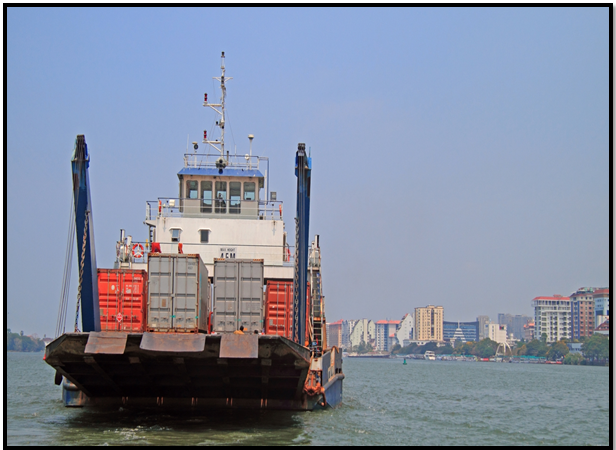AS INDIA RAMPS UP FTAS, A NEW SYSTEM IN THE WORKS TO STOP CONCESSIONS MISUSE
Source: IE
Relevance:
GS 2 – International Relations, GS 3 – Economic Development
Context:
- As India accelerates its engagement with Free Trade Agreements (FTAs), the government is taking significant steps to address the misuse of trade concessions.
- The Finance Ministry is developing a new risk management system aimed at preventing fraudulent claims of FTA benefits.
- This initiative comes alongside customs rule relaxations to streamline trade processes and enhance compliance.
Strategic Importance of FTAs:
- Free Trade Agreements are pivotal to India’s trade policy, offering a framework for tariff reductions, enhanced market access, and stronger economic ties with partner countries.
- FTAs are intended to boost trade by reducing barriers and promoting easier access to markets.
- However, the misuse of these concessions undermines their intended benefits, causing revenue losses and creating unfair trade conditions.
Key Measures and Developments:
- Risk Management System:
- The Central Board of Indirect Taxes & Customs (CBIC) is spearheading the development of a risk management system designed to monitor and prevent misuse of FTA concessions.
- CBIC Chairman Sanjay Kumar Agarwal emphasized that the system would be crucial in safeguarding revenue and ensuring that FTAs are not exploited. “The new risk assessment system is crucial to safeguard revenue and ensure that FTAs are not misused,” he stated.
- Rules of Origin Compliance:
- Ensuring compliance with rules of origin is central to the new system. These rules require importers to provide adequate proof that goods claiming FTA benefits meet the stipulated criteria.
- Ajay Srivastava, Founder of the Global Trade Research Initiative (GTRI), noted, “Proper proof of origin is essential to prevent misuse of FTAs. Additional conditions beyond FTA agreements are necessary to tighten compliance.”
- Self-Certification Challenges:
- Many FTAs, including those with the UK and EU, allow self-certification of origin, posing significant challenges in ensuring compliance. This has often led to instances of fraudulent claims.
- The new system aims to address these challenges by introducing stringent verification processes and leveraging technology for better oversight.
Impact on Trade and Economy:
- Economic Growth and Revenue Protection:
- FTAs have been instrumental in boosting India’s trade volumes. For instance, India’s trade with ASEAN countries under the FTA framework has seen substantial growth, with bilateral trade reaching $111.9 billion in 2022-23.
- Effective enforcement of FTA rules is essential to protect government revenue. Misuse of concessions can lead to significant revenue losses, which the new system aims to prevent.
- Enhanced Trade Relations:
- Strengthening compliance mechanisms enhances trust and cooperation with trade partners, which is crucial for negotiating future FTAs and modifying existing ones.
- By ensuring that trade concessions are not misused, India can demonstrate its commitment to fair trade practices, thereby improving its negotiating leverage.
- Regulatory and Customs Efficiency:
- The risk management system is expected to streamline customs processes, making trade more efficient and reducing the time and cost associated with compliance.
- Aligning with global best practices in trade compliance strengthens India’s position in the international trade community.
Broader Implications
Geopolitical Strategy:
- Strengthening FTA compliance aligns with India’s broader geopolitical strategy, particularly its Act East Policy and Indo-Pacific vision. By ensuring fair trade practices, India can better engage with regional trade partners and counterbalance China’s influence.
- India’s proactive stance in enhancing trade compliance also positions it as a reliable and credible partner in the global trade ecosystem.
Sustainable Economic Integration:
- FTAs are vital for deeper economic integration. By preventing misuse of trade concessions, India can ensure that the benefits of FTAs are realized, contributing to economic growth and stability.
- The development of robust infrastructure and efficient customs processes under the new system will further integrate India into the global economy.
Trade Facilitation and Market Access:
- Improved compliance mechanisms can facilitate smoother trade flows, reducing delays and costs associated with customs procedures. This enhances India’s attractiveness as a trading partner.
- By ensuring that only genuine products benefit from FTA concessions, the system can promote fair competition and boost confidence among international traders.
Challenges and Future Directions
Technological Integration:
- Implementing digital platforms for real-time monitoring and compliance tracking will be crucial for the success of the new system.
- Leveraging data analytics to identify patterns and flag potential non-compliance can significantly enhance enforcement capabilities.
Capacity Building:
- Regular training programs for customs officials and stakeholders on FTA compliance can strengthen enforcement and ensure smooth implementation.
- International collaboration and knowledge exchange with trade bodies can help India adopt best practices in trade compliance.
Policy Coordination and Public Awareness:
- Harmonizing trade regulations with international standards can streamline compliance and reduce discrepancies.
- Running awareness campaigns about the importance of FTA compliance among businesses can promote adherence and reduce instances of misuse.
Economic Diversification:
- Promoting diverse sectors such as manufacturing, technology, and services through FTAs can lead to more balanced economic growth.
- Encouraging foreign investments in these sectors under FTA provisions can create jobs and drive innovation.
Social and Environmental Considerations:
- Ensuring that FTAs incorporate social and environmental standards can promote sustainable development.
- Policies to protect labor rights and environmental standards can be integrated into FTAs to ensure holistic growth.
Conclusion
India’s initiative to develop a new risk management system for FTAs is a critical step towards ensuring fair trade practices and protecting government revenue. By enhancing monitoring mechanisms and ensuring strict compliance with trade rules, India can safeguard its economic interests and strengthen its position in the global trade arena. This move not only boosts India’s credibility in international trade but also paves the way for sustainable economic growth and deeper regional integration.
Mains Question:
Discuss the significance of India’s new risk management system in preventing misuse of concessions under Free Trade Agreements (FTAs). How does this initiative impact India’s trade relations and economic growth? (250 words)




